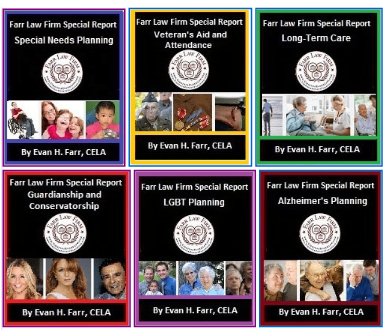Straying from Loved Ones
If you cannot view the image below, please read the article on our blog.

photo from upmc.com
Q. This past summer, I went to Burke Lake Park with a friend, Mary, who has a child with autism. While purchasing a ticket for the carousel for another child, Mary's son wandered off. After searching for a bit, and involving the park authorities and the police, he was found near the train tracks (and luckily he was fine!).
That same day, I received a notice via Nextdoor (an online neighborhood bulletin board), that an 80-year old woman with dementia left her home while her caregiver was taking a shower. She was found at a nearby shopping center (on the other side of a major road), completely disoriented.
I read that half of all children with autism, and 3 out of 5 people with dementia, wander. And for autism, more than 40% of such cases involving children under age 9 have ended in death. This is extremely alarming. Do you know if anything is being done, on a national or local level, to help with this problem? Also, what can people like my friend and my neighbor do to prevent wandering from happening?
A. Similar to wandering behaviors in seniors with dementia or Alzheimer’s, children with autism are prone to wandering away from a safe environment. Unfortunately, many cases end in tragedy. Luckily, in both situations, advocacy groups are banding together to call for federal action to help prevent wandering, and the same groups are developing educational resources to help. Below is what is being done:
Autism and Wandering
Research suggests that 50% of children with autism have a tendency to wander, and as you mentioned, more than 40% of such cases involving children under age 9 have ended in death. A collective, called the Autism Safety Coalition, launched earlier this summer to promote wandering awareness, is putting its weight behind federal legislation known as Avonte’s Law. The bill would provide funding to law enforcement agencies for wandering-prevention efforts and allocate federal dollars to offer free electronic tracking devices to children with autism and other developmental disabilities who are prone to bolting.
The legislation is named for Avonte Oquendo, a 14-year-old with autism who went missing in 2013 from his New York City school. His remains were discovered months later.
“Children and adults with autism and other disabilities frequently wander from safe settings, often with tragic consequences. It’s time for federal action,” said Wendy Fournier, president of the National Autism Association, who indicated that the legislation would offer many of the same resources to the disability community that are already provided to those affected by Alzheimer’s disease.
U.S. Sen. Chuck Schumer, D-N.Y., first proposed Avonte’s Law last year and introduced the legislation earlier this year. Unfortunately, thus far, the bill has not gained traction.
Whether or not federal efforts pan out, awareness is the most effective tool. The following resources are recommended by Autism Speaks. To report an active case of wandering, click here.
AWAARE Family Wandering Emergency Plan (FWEP)
6 Tips to Help Prevent Wandering and Wandering-Related Tragedies
7 Steps You Can Take to Prevent Wandering at Your Child's School
A Digital Guide for Caregivers: Learning to Prevent Wandering
AWAARE Wandering Discussion video
Autism Safety Project
Autism Safety Resources and Products
Other Wandering-Related Resources
Wandering and Dementia
More than 60 percent of those with Alzheimer’s or another form of dementia will wander, and if a person is not found within 24 hours, up to half of individuals who wander will suffer serious injury or death.
As many states use an “Amber Alert” system to identify lost or abducted children, the majority of states also have “Silver Alert” systems to help find seniors who have wandered off and gotten lost. In Virginia, for example, the Virginia Senior Alert Program was passed in 2007. The legislation established a way to issue a state-wide alert when an over 60-year-old person with a cognitive impairment has been reported missing.
The program uses a variety of methods to get information out concerning the missing person: the Emergency Network System, the Virginia Criminal Information Network; the Virginia Missing Person Information Clearinghouse; and even the public utilities’ communication system. Maryland also enacted a Silver Alert program in 2010, and DC did so in 2013.
Unfortunately, not every state participates in Silver Alerts. Because of the variation in Silver Alert laws, directories, and registries, some advocates and lawmakers have called for a Nationwide Silver Alert program. In 2010 a bipartisan coalition of Congresspersons proposed a bill that would have funded a national silver alert program, but seemingly more pressing troubles occupied Congress’ time that year and the bill
was never voted on. A renewed effort to invest in such a national program could go a long way to mitigating the Alzheimer’s wandering crisis.
For resources on Alzheimer's and Dementia and wandering, please visit the Alzheimer's Association Alzheimer's and Dementia Caregiver Center. Please also read our blog, "Alzheimer's Caregivers Need to See This, for additional resources.
How You Can Help Prevent Wandering and Wandering-Related Tragedies
• Secure Your Home: Consider contacting a professional locksmith, security company or home improvement professional to promote safety and prevention in your home. You may find it is necessary to prevent your loved one from slipping away unnoticed by installing secure dead bolt locks that require keys on both sides, a home security alarm system, inexpensive battery-operated alarms on doors, fencing your yard, adhering printable STOP SIGNS to doors, windows and other
exits, etc.
• Consider a Tracking Device: Check with local law enforcement for Project Lifesaver, MedicAlert, or LoJak SafetyNet services. These tracking devices are worn on the wrist or ankle and locate the individual through radio frequency. Various GPS tracking systems are also available.
• Consider an ID Bracelet: Medical ID bracelets will include your name, telephone number and other important information. They may also state that your loved one has autism or dementia. If your loved one will not wear a bracelet or necklace, consider a temporary tattoo with your contact information.
• Alert Your Neighbors: It is recommended that caregivers have a brief visit with all neighbors to introduce their loved or provide a photograph. Knowing your neighbors can help reduce the risks associated with wandering.
Whether you're a caregiver for a loved one with autism or dementia, we urge you to plan for your future and for the future care needs of your loved one. To learn more about special needs planning, please click here. If you have a loved one who needs long-term care now or in the future due to Alzheimer's or any other type of dementia, please contact us. We help protect the family’s hard-earned assets while maintaining your loved one’s comfort, dignity, and quality of life by ensuring eligibility for critical government benefits such as Medicaid and Veterans Aid and Attendance. To make an appointment for a no cost consultation, call us:
Fairfax Elder Law: 703-691-1888
Fredericksburg Elder Law: 540-479-1435
Rockville Elder Law: 301-519-8041
DC Elder Law: 202-587-2797
-----
Critter Corner: How Can The ABLE Act Help My Special Needs Daughter?

Dear Baxter,
My daughter has intellectual disabilities. I read in one of your newsletters that Virginia was the first state to enact the ABLE Act. I don't know much about it, but it may be something that can help my daughter with her education expenses, without jeopardizing her benefits. Can you explain more? Also, who is Stephen Beck, Jr, and why was the act named for him?
Thanks!
Abel Tahelpper
---
Dear Abel,
Last December, the Stephen Beck, Jr. Achieving a Better Life Experience Act of 2014 (ABLE Act) won final congressional approval and was signed into law by President Obama. As you mentioned, in July of this year, Virginia became the first state to approve it.
The ABLE Act allows for savings accounts for individuals with disabilities for certain expenses, including education, housing, and transportation, without jeopardizing certain important federal benefits such as SSI and Medicaid. To be eligible, an individual must be someone who becomes disabled before age 26 and (1) receives Social Security Disability Insurance (SSDI) or SSI; or (2) obtains a disability certification under rules that the IRS will write.
Sadly, the man who conceived and worked tirelessly to pass the legislation, Steve Beck of Burke, Virginia, died suddenly right around the time the law was passed. Steve was 44 years old and the parent of two daughters, including Natalie who has a disability. Steve, along with a group of parents around his kitchen table, conceived the idea of a savings account for his daughter, similar to the 529 account used for college savings. The passage of the Act is a wonderful tribute to the memory of
Steve Beck.
Although federal law applies uniformly to all states, individual states may regulate ABLE accounts differently. Under current law, states provide different tax benefits for college savings accounts, which are similar to ABLE accounts. For more details about the ABLE Act, by state, please see the ARC website.
If you haven't started planning for your daughter with special needs (or for yourself), please call one of our offices to make an appointment for a no-cost consultation.
Arfs and Kisses,
Baxter
--------
Sign up for our FREE Special Reports and get the answers to your burning questions! Just click on a cover below!

|
| In the Media |
|
Listen to my interview on "Swim with Jim," where I discuss Aging in Place.
|
| |
| Special Offer |
|
We’re Giving Away My Best-Selling Books – Click Here to Find out Why and to Get Your Free Copies
|
| |
| Find Us |
|
|
| Upcoming Events |
|
Our upcoming Living Trust Plus: How to Protect Your Assets from the Expenses of Probate and Long Term Care seminar is on October 10 or November 21 in Fairfax.
----------
|
Article Reprint Authorization
|
We invite you to reprint our articles to bring helpful content to your readers, with the following guidelines:
-The article is to be printed in its entirety;
-Additions, deletions, or changes in the text, title or illustrations may not be made;
-Credit is given to The Law Firm of Evan H. Farr, P.C., as the original source.
Example:
Source: Reprinted from The Law Firm of Evan H. Farr, P.C. Newsletter (www.FarrLawFirm.com).
|
|
Mailing Address
|
Fairfax:
10640 Main Street
Suite 200
Fairfax, VA 22030
703-691-1888
Fredericksburg:
511 Westwood Office Park
Fredericksburg, VA 22401
540-479-1435
Rockville, MD:
1 Research Court
Suite 450
Rockville MD 20850
301-519-8041
Washington, DC:
1425 K Street, NW
Suite 350
Washington, DC 20005
202-587-2797
|
|

